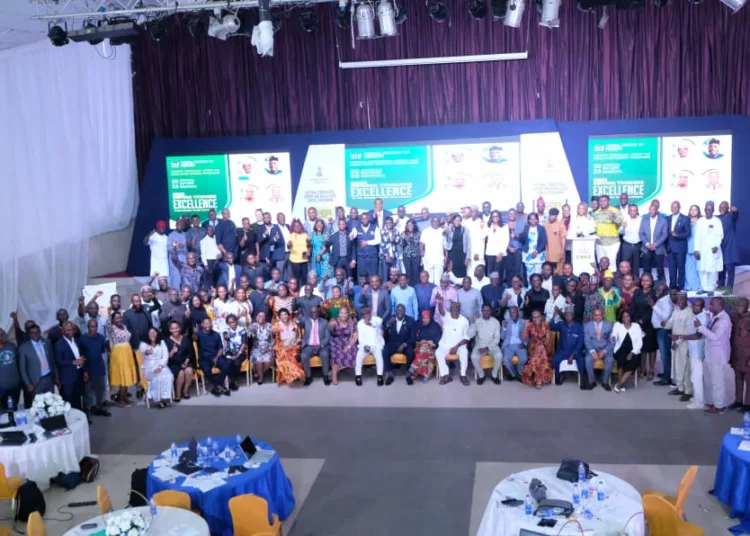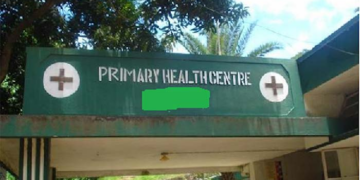Stakeholders in the National Tuberculosis, Leprosy and Buruli Ulcer Control Programme (NTBLCP) recently convened in the Lekki area of Lagos State for their annual review, discussing the strides made and challenges faced in combating tuberculosis, leprosy, and buruli ulcer across the nation.
The event, held in the Lekki area, focused on assessing progress made in tackling these three infectious diseases and charting a course for the future.
Dr. Chukwuma Anyaike, Nigeria’s Director of Public Health, stressed the significance of the event as an opportunity to take stock of Nigeria’s progress towards eliminating these diseases. He emphasised the alignment of efforts with the global push for universal health coverage by integrating various programs and ensuring inclusivity in healthcare delivery.
Speaking specifically about tuberculosis, Dr. Anyaike acknowledged a notable impact on the case situation of the disease in Nigeria. He revealed an upward trend in identified cases, with figures increasing from 24% coverage in 2019 to a remarkable 60% by 2022. Despite challenges posed by the COVID-19 pandemic, Nigeria reported a surge in identified tuberculosis cases, reaching over 285,000 by the end of 2022. Dr. Anyaike attributed this progress to innovative approaches and collaborative efforts involving government support, international organisations like USAID and the Global Fund, and civil societies.
While acknowledging Nigeria’s prominent position as the country with the highest tuberculosis burden in Africa and the sixth globally, Dr. Anyaike expressed the determination to transform this narrative. He added that there are plans for a comprehensive national and subnational prevalence survey to better understand and address the varying burdens across states.
Dr. Anyaike also highlighted the critical challenge of human resource capital and the government’s initiatives, led by the Minister of Health, to capacitate frontline workers and revitalise primary healthcare systems to enhance healthcare delivery nationwide.
He said, “Even though Nigeria is number one in the burden of tuberculosis and 6th globally, we want to change that narrative. Tuberculosis is spread all over the country but in terms of population we can say we have a higher burden in Lagos and Kano states. That is why as a national programme we are thinking of having a national and subnational prevalence survey of tuberculosis; the last time it was done was a decade ago, so we should be able to have that survey to be able to rank states by TB prevalence.”
Continuing he added, “The minister of health is championing, deliberately, the building of capacity of front line workers. At the moment he is thinking of building a capacity of not less than 120,000 frontline workers and revitalising the Primary Health Care system, since our health system is built on the principle of Primary Health Care and we think that that is going to make a very huge impact on health care delivery in the country.”
On his part, Dr Emperor Obochioma of the National TB and Leprosy Control Programme, stressed the need to improve public awareness of tuberculosis, noting the role of the media in disseminating information. He outlined the key signs of the disease, including chronic cough lasting over two weeks, weight loss, night sweats, and other symptoms.
Dr. Obochioma highlighted the influence of poverty on the spread of tuberculosis due to compromised immune systems, underscoring the importance of nutritional support and early detection, particularly in vulnerable populations such as children.
He said, “The major cause of tuberculosis is what we call Mycobacterium tuberculosis, also known as Koch’s bacillus, and the major signs primarily is cough, chronic cough and it lasts for more than two weeks or more, weight loss, night sweat, even when the weather is cold the person is still sweating, some people will even go to the extent of coughing out blood, even fever.
“Poverty has a high impact in the spread of tuberculosis because that’s when the immune system of a person gets low. The immune system of a person gets low because they are not eating the normal nutrition meals that they are supposed to eat, then there is likelihood that they will be diagnosed with tuberculosis.
“Actually most of us have the baccilla in our lungs but it’s not active because our immune system actually suppressing it because it is strong, but for those who are not able to add nutritional value, who are sick, who also have diabetes and all the rest or even those who are taking drugs that are weakening their immune system there are likely to develop tuberculosis. Children are also more at risk and the worst is that, currently, diagnosing TB in children is still very low so it is important to also do more on children, passing more information about children.”
Dr. Aderonke Agbaje, the Director of Programmes and Chief of Party, Institute of Human Virology Nigeria, emphasized the meeting’s purpose in reviewing past efforts and identifying gaps in addressing infectious diseases.
She stressed the need for increased awareness and domestic funding, calling on the government, philanthropists, and private organisations to commit more resources towards combating tuberculosis, leprosy, and buruli ulcer.
Dr. Agbaje highlighted the vulnerability of specific groups, such as children, men, and pregnant women, underscoring the urgency to enhance care and preventive measures for these populations.
This is a National TB, Leprosy and Buruli Ulcer Control Programme annual review meeting where we have the government officials, the state programme managers, the implementing partners, working with the NTBLCP, bilateral and multilateral donors as well and basically what we have come here to do is to review the past year,” Dr. Agbaje said. “Look at what we have done well, look at where gaps still exist and then come up with strategies to address those gaps so that as we go back to the respective states we work in, we will make sure that we put processes, plans and strategies, even policies in place to address those gaps.
” At the same time we learn from each other what some states have done well and then go back to those states and also apply them. I think what is really coming out and what is really critical, a few issues that have come up so far: the big one is awareness. There still a lot of awareness that needs to be created so that people in the state, communities and the grassroots will know about these infectious diseases and how they spread, how they can be prevented, where they can access care.
“Right now we have a lot of support for the management of those diseases and those affected don’t have to pay, they can access them for free of charge. Another big issue that has come to the fore is with regards to domestic funding.”
On her part, Dr. Bolatito Ayenigba, the Deputy Project Director for Malaria and Tuberculosis at Breakthrough ACTION Nigeria, emphasised the importance of heightened awareness in the fight against tuberculosis (TB).
Dr. Ayenigba stressed the critical role that public knowledge plays in controlling the spread of this infectious disease.
Underscoring the urgency of the situation, Dr. Ayenigba said, “A single person infected with TB can transmit the disease to a large number of people around them. This makes it crucial for individuals to be aware of the symptoms of TB and seek immediate medical attention if they suspect they might be infected.
“Fortunately, the Nigerian government provides free TB treatment and drugs at all primary healthcare centres across the country. This means that anyone diagnosed with TB has access to the necessary care and medication without any financial burden.”




